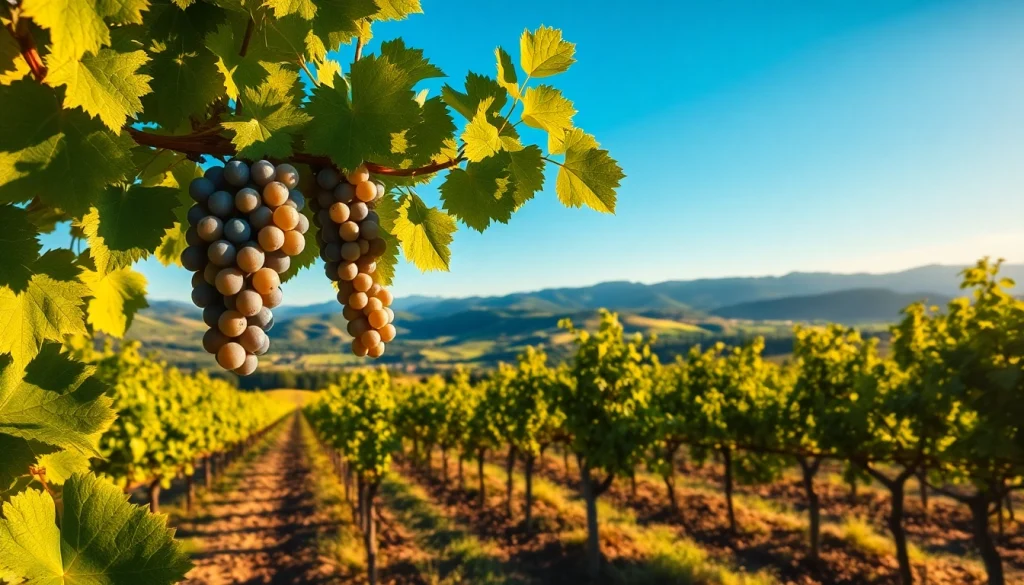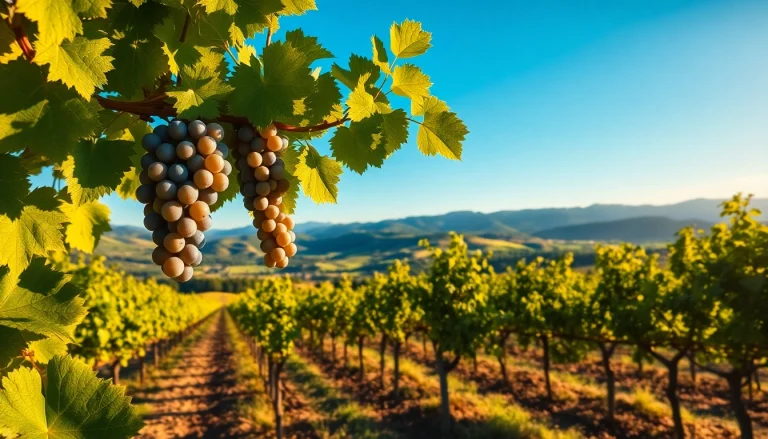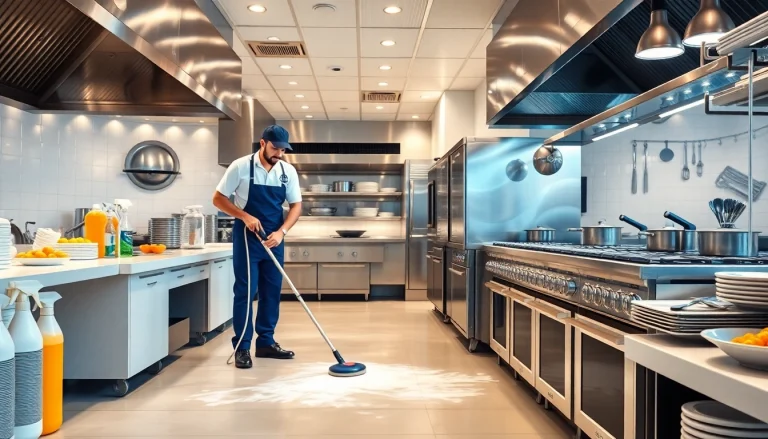
Understanding Rhone: Geography and Climate
Located in the southeastern region of France, the Rhone Valley is known for its rich viticultural heritage, characterized by a diverse landscape and unique climate. This area has become a vital part of the French wine industry, delivering iconic wines that reflect their environment. Understanding the geography and climate of the Rhone is essential in appreciating the distinctive characteristics of its wines.
The Unique Landscapes of Rhone
The Rhone Valley stretches approximately 200 kilometers from the northern city of Vienne to the southern city of Avignon, encapsulating varied terrains that range from rolling hills to steep terraces. It is bisected by the Rhone River, which plays a crucial role in shaping the valley’s microclimates. The diversity of landscapes not only enhances the beauty of the region but also contributes significantly to its viniculture.
The northern part of the Rhone is renowned for its steep, granite slopes, which provide excellent drainage and sun exposure necessary for producing high-quality grapes. In contrast, the southern Rhone features a more diverse range of soil types, including clay, limestone, and alluvial deposits, which allow for a broader variety of grape cultivation. Thus, the geographical characteristics of the Rhone influence both the type of grapes grown and the resulting wine styles.
Weather Patterns Impacting Viniculture
The climate in the Rhone Valley is primarily Mediterranean, characterized by hot, dry summers and mild winters. This climate is highly conducive to growing grapes, as it allows for the development of sugar and phenolic compounds essential for flavor and aroma. The northern Rhone, however, experiences a more continental climate, where temperature variations can be significant. This variation often results in richer, more complex flavors in the wine.
Understanding the weather patterns is vital for vintners in planning their harvests. For example, the Mistral wind, prevalent in the region, helps to reduce humidity and prevent grape diseases, contributing to healthier grape growth. Such climatic nuances enable winemakers to tailor their practices and select ideal harvesting times that align with the specific conditions of each growing season.
Soils and Terroirs of the Rhone Valley
The concept of terroir, which encompasses the unique environmental factors affecting a vineyard, is paramount in the Rhone Valley. The region’s soil diversity—from the granitic soils in the north to the clay and sedimentary soils in the south—contributes distinct flavors to the wines.
For instance, the presence of limestone is common in Côtes du Rhône, which enables excellent drainage and nutritional components that support vine health. In contrast, the heavy clay soils in areas like Châteauneuf-du-Pape are ideal for retaining moisture during dry periods, ensuring grape ripeness. Due to this diverse soil composition, each wine produced reflects a specific sense of place, reinforcing the connection between the vineyards and their respective terroirs.
Exploring the Wine Varietals of Rhone
The Rhone Valley is home to many extraordinary wine varietals, each contributing to the region’s global reputation. Understanding these grapes and their profiles is essential when exploring the richness of Rhone wines.
Signature Grapes of Rhone Region
The Rhone is renowned for its signature grape varietals. In the northern part, the Syrah grape reigns supreme, known for its dark, bold flavors and ability to produce complex, age-worthy wines. Meanwhile, in the south, Grenache serves as the backbone for many blends, offering fruit-forward characteristics and a soft texture. Other notable varietals include Mourvèdre, which adds depth and structure, and Viognier, with its aromatic qualities perfect for white wines.
In total, the Rhone is home to over 20 different grape varietals. Each varietal thrives in specific sub-regions based on unique climatic and soil conditions, showcasing the rich biodiversity that can be found within the valley. As a result, the wines produced are as diverse as their grape counterparts, from robust reds to refined whites.
Red vs. White Wines: A Flavor Profile
Rhone produces both red and white wines; however, the character and style of the wines vary considerably between these two categories. Red wines from the Rhone are typically full-bodied with rich fruit flavors complemented by spicy, earthy undertones due to the region’s varied soils and microclimates.
White wines, on the other hand, exhibit bright acidity and floral notes, often resulting from varietals like Viognier and Roussanne. The strength of both red and white varietals can be attributed to the terroir—the unique combination of climate, soil, and traditional skills of the vintners. As such, tasting Rhone wines offers a distinct experience shaped by multiple factors.
The Art of Blending in Rhone Wines
Blending is a hallmark of Rhone winemaking and is an essential technique that distinguishes the region’s wines. Each vineyard strives to achieve a balanced wine that captures the unique spirit of its terroir. In many cases, producers will blend several varietals together to create greater complexity and depth than any single grape could provide.
For example, a classic Châteauneuf-du-Pape may consist of up to 13 different grape varietals, with Grenache, Syrah, and Mourvèdre being the primary components. Winemakers carefully craft these blends, often experimenting with different combinations of grapes, aging methods, and fermentation processes to create a final product that reflects both the vineyard’s specific characteristics and the uniqueness of the year’s harvest.
Cultural Significance of Rhone
The cultural backdrop of the Rhone Valley goes hand in hand with its winemaking traditions. With a history that dates back to the Romans, the Rhone is steeped in stories and practices that have shaped its modern-day identity.
Historical Influence on Winemaking
The roots of viticulture in the Rhone can be traced back to the ancient Romans, who planted vineyards along the valley’s banks to supply their growing population. Their methods and choices of grape varietals established foundational practices that shaped the future of winemaking in the region.
Over centuries, techniques and grape cultivation practices have evolved, influenced by both local culture and global shifts. The establishment of AOCs (Appellations d’Origine Contrôlée) in France during the 20th century further solidified the region’s commitment to quality and protection of its wine heritage, ensuring that products labeled from the Rhone truly reflect its unique characteristics.
Festivals Celebrating Rhone’s Heritage
Cultural festivities in the Rhone region play a significant role in celebrating its winemaking heritage. Events such as the Fête des Vins de Vienne showcase the local wines, providing opportunities for both education and enjoyment. Visitors can partake in tastings, culinary experiences, and local music, immersing themselves in the region’s rich culture.
Additionally, the annual Côtes du Rhone Wine Fair highlights the importance of community in promoting local craftsmanship and draws both locals and tourists eager to explore the remarkable products crafted by local winemakers. These festivals not only celebrate the wines but also the traditions and history that have cultivated their existence.
Gastronomic Pairings with Rhone Wines
Pairing food with wine can enhance the tasting experience immensely, and the Rhone region boasts a wealth of culinary options that complement its wines beautifully. The vibrant flavors of Rhone wines can be paired with traditional local dishes such as ratatouille, grilled meats, and hearty stews.
For white wines, delightful pairings may include charcuterie, shellfish, or grilled fish, allowing the bright acidity and aromatic characteristics to shine through. The blend of flavors in both food and wine creates a complex and enjoyable dining experience that pays homage to the rich heritage of the region.
Tasting and Touring in Rhone
For wine enthusiasts looking to dive deeper into the world of Rhone wines, touring the region offers invaluable insight. A visit can be a transformative experience, providing context and appreciation for the artistry behind each bottle.
Top Vineyards to Visit in Rhone
The Rhone Valley boasts numerous vineyards, each with its distinctive charm. Notable vineyards such as Château de Beaucastel in Châteauneuf-du-Pape and Domaine Jamet in Côte-Rôtie are popular destinations that offer tours and tastings. Each vineyard typically embodies unique practices and philosophies, providing visitors a glimpse into the craft of winemaking.
A visit to these vineyards allows wine lovers to witness firsthand the grape-growing process, from the vineyard to the cellar, and engage with knowledgeable staff who can share stories about the land and its tradition. The opportunity to taste wines directly from the source enhances the understanding and appreciation of the Rhone’s diverse offerings.
Guided Wine Tasting Experiences
Participating in guided wine tastings is an excellent way to explore the complexities of Rhone wines. Expert sommeliers provide insights into the history of the region, the characteristics of different varietals, and the intricacies of tasting techniques. Many wineries offer structured tasting sessions designed to educate participants about the various factors that influence wine quality.
During these sessions, participants will learn to identify aromas, flavors, and tannins in each wine, equipping them with the skills necessary to appreciate the subtleties of different varieties. Such experiences broaden the understanding of why Rhone wines hold their unique profiles and qualities.
Self-Guided Tours: Discovering Hidden Gems
For those who prefer a more independent exploration, self-guided tours can uncover hidden gems throughout the Rhone Valley. A visit to smaller, family-run estates can offer an intimate perspective on winemaking traditions that may differ from larger operations.
Travelers can design their itineraries around lesser-known wineries, local markets, and quaint villages, allowing for a more relaxed and authentic experience. Resources such as local visitor centers and wine maps assist in navigating the various routes and discovering the unique flavors that each area of the Rhone has to offer.
Future Trends in Rhone Winemaking
The winemaking industry is continually evolving, and the Rhone Valley is at the forefront of several innovative trends that promise to shape its future. As concerns regarding sustainability and global impacts become increasingly prominent, winemakers are adapting their techniques to align with new expectations.
Sustainability Practices in Vineyards
In an era of climate consciousness, sustainability practices in vineyard management are gaining traction in the Rhone. Many producers are transitioning to organic or biodynamic farming methods to promote soil health, reduce chemicals, and improve overall vineyard biodiversity. These practices not only enhance the quality of the grapes but also conserve natural resources and promote a balanced ecosystem.
This shift towards sustainability is reassured by the consumers who increasingly prefer environmentally friendly products. Many wineries in the Rhone are eager to communicate their commitment to sustainable practices, using labels and marketing strategies that emphasize their environmentally friendly approaches.
Innovative Techniques and Technology
Technological advancements are also impacting the way winemaking is practiced in the Rhone Valley. Innovations in viticulture, such as drone technology for monitoring vineyard health and precision farming techniques, enable producers to optimize their practices for better yields and grape quality. The use of modern fermentation techniques can enhance flavor extraction and improve the overall quality of the wine.
Embracing technology allows vintners to maintain the prominent traditions of the Rhone while adapting to the evolving landscape and consumer preferences. Balancing age-old practices with innovative approaches ensures that the Rhone remains a pivotal player in the global wine industry.
Global Impact of Rhone Wines
The influence of Rhone wines extends beyond the borders of France, impacting global wine culture significantly. The wines produced in this region are widely sought after, showcasing a blend of tradition and innovation that appeals to diverse consumer preferences worldwide. With the increasing popularity of Rhone varietals outside of France, the region is gaining recognition and respect among international wine enthusiasts.
This global footprint also encourages collaboration and exchange of ideas among winemakers from different regions, further enriching the experience of wine lovers. As Rhone wines continue to evolve, their legacy will undoubtedly influence future generations of winemakers and expand their reach across the globe.






